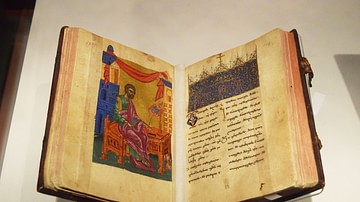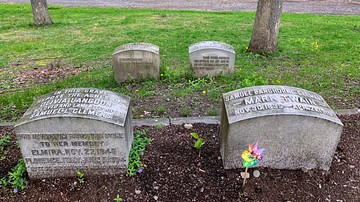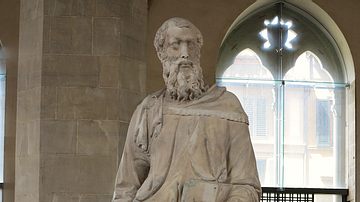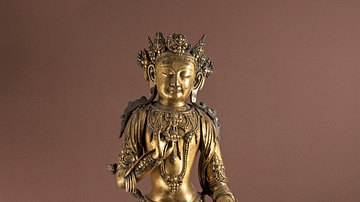Search
Did you mean: Mari?
Search Results

Image
Mark Lester as Oliver Twist
Mark Lester as Oliver Twist in a scene in the workhouse from Oliver!, a 1968 musical adaptation of Oliver Twist by Charles Dickens (1812-70). The story of Oliver Twist, first serialised in 1837, highlighted the plight of poor children in...

Definition
The Gospels
The New Testament contains four gospels attributed to Matthew, Mark, Luke, and John. The four gospels are not biographies of Jesus, nor are they history as we define it. What each gospel attempted to do was write a theological explanation...

Image
Artistic Facial Reconstruction of Mark Antony
Photorealistic reconstruction of Roman statesman Mark Antony (l. 83-30 BCE). This reconstruction is based on archaeological evidence including busts, coin portraits and statuary This reconstruction was made using Artbreeder, an AI neural...

Image
Bust of Mark Antony
A bust of Marcus Antonius (Mark Antony), from the Vatican Museums.

Image
British Mark IV Tank
A photograph of a British Mark IV tank, used during the First World War (1914-18). (Imperial War Museums)

Image
Coin Depicting Mark Antony & Octavia
Roman coin depicting Mark Antony and Octavia Minor, c. 39 BCE.

Image
Graves of Mark Twain and His Wife
Graves of Olivia Langdon Clemens and Mark Twain at Woodlawn Cemetery, Elmira, New York.

Image
Saint Mark by Donatello
A marble figure of Saint Mark by the Italian Renaissance sculptor Donatello (c. 1386-1466 CE). Created between 1408 and 1413 CE, it originally stood in a niche outside Florence’s Orsanmichele hall.

Image
Miracle of St. Mark by Tintoretto
The Miracle of Saint Mark Rescuing a Slave by the Italian Renaissance artist Tintoretto (c. 1518-1594 CE). 1548 CE. (Academia, Venice)

Image
Bodhisattva with Yongle Reign Mark
Bodhisattva; probably Qutan Temple, Qinghai Province, China; Ming dynasty, Yongle reign mark (1403–1424 CE); gilt bronze; 53 1/2 x 26 x 17 7/10in. (136 x 66 x 45 cm); Musée Cernuschi, Asian Arts Museum of Paris; MC5173; photograph © Stéphane...